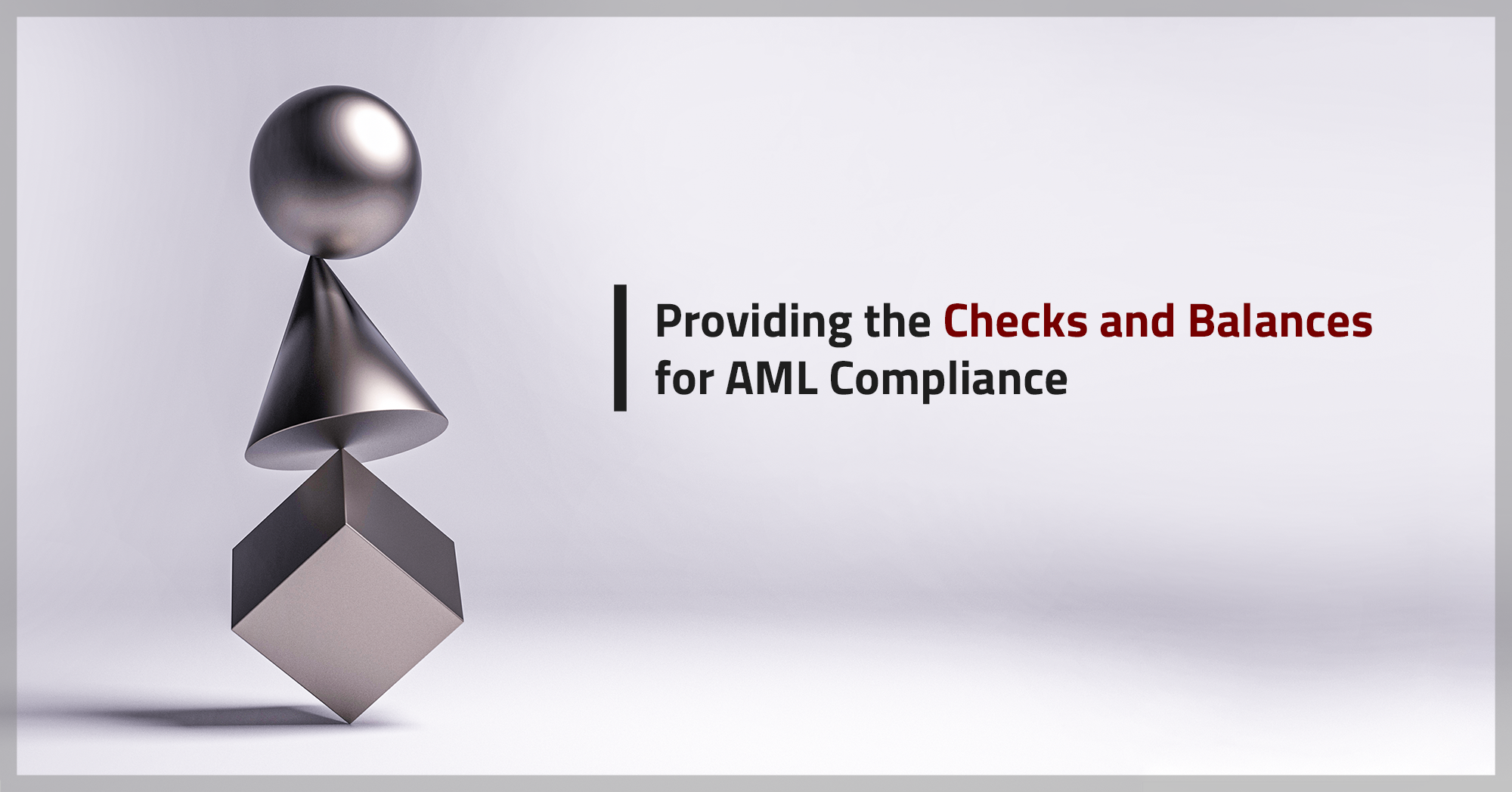
Providing the Checks and Balances for AML Compliance
Anti-money laundering is a burgeoning concern for organizations across the world. As access to international markets widen, so do opportunities to launder money. AML compliance is fast becoming a focal point for financial businesses, and more organizations are seeking external aid.
Implementing a strong AML compliance system requires a comprehensive risk assessment, stringent implementation of compliance procedures, continuous monitoring of deviations from risk, reporting any meaningful deviations, and regular evaluation of new risk management techniques.
Rapidly evolving regulations also mean organizations struggle to keep up with AML compliance, and play catch up when it comes to recruiting competent staff. On the other hand, failure to comply puts them at greater risk of facing regulatory action. The challenge is to chart a trajectory that balances safety with efficacy.
Can Compliance Be Outsourced?
Outsourcing AML responsibilities to an established partner can help achieve operational excellence, and infuse expert financial crime advisory into an overwhelmed organization. While choosing a third-party AML service provider, an institution must ensure that the provider matches the organization’s internal risk goals, constraints, and complements in-house resources.
A key feature of a sound AML service is traceability in its compliance implementation. This will enable an organization to track progress and solve issues in their nascent stages. A good vendor will tick the following boxes, at the very least:
- Consistency: provider’s compliance advice is reliable, credible, and free from conflicts of interest
- Transparency: policies and costs are reviewable, and there is room for change
- Accountability: performance can be scrutinized independently
- Scalability: party has resources to scale up if business requires it
To ensure smooth operation, an organization must coordinate routinely with the service provider to monitor progress. Outsourcing compliance requirements will mean constant communication with the vendor, regular reviews of implementation, and promptly tackling any escalations that arise.
Appointing a specialized compliance officer solely to oversee AML requirements and coordinate with third-party providers on implementation can help establish vital checks and balances.
An AML compliance officer will ensure that the organization’s goals are being met while the institution is minimizing its exposure to criminal risk as well as circumventing inadvertent financial crime. They will also be able to keep track of various subcontractors, maintain record of sensitive information, and lead inspections and audits of third-parties. A strong, knowledgeable and dedicated officer will be able to keep senior management up-to-date on any revisions required in AML compliance strategy and will also be able to undertake employee training.
Given the legal and financial implications of anti-money laundering, it is imperative that an organization regularly benchmarks its arrangements against peers. Keeping up with technological advancements and new service providers, and being open to change can help avoid potential mishaps.
What You Should Outsource?
Apart from choosing the right service provider, it is also pertinent to evaluate the appropriate processes to optimize your AML compliance. Labour-intensive, routine processes are ideal tasks that can be entrusted to third-parties. According to a Huntswood report on anti-money laundering, the following are most-suited to outsourcing
- Know Your Customer data
- Investigating financial alerts
- Company Due Diligence
- Customer risk assessment
- Sanctioned and Politically Exposed Person checks
Outsourcing a chunk of competitive and customer-centric processes to an outside supplier can not only reduce the workload, but can also help stay in line with industry practices that meet all key performance metrics.
Tracking Change and Continued Service
Although a third-party can be onboarded for AML requirements, the ultimate responsibility still lies with the organization. Regulatory obligations cannot be delegated. Lax AML compliance will still have direct financial and reputational implications for the organization.
Outsourcing compliance should be looked at as a partnership rather than a proxy technique. Both parties need to work in conjunction with each other to ensure that there’s a flexible plan in place to fight financial delinquency.
The bottom line while executing AML, is to watch out for gaps and work together with third-parties to weed out risks that could potentially topple the company’s security.


